This is a guest post by Gary Robinson, one of Verto’s mental health consultants. In addition to working with Verto, Gary is the Director of Counseling at Hartwick College and co-founder of P3 Mental Health Advisors.
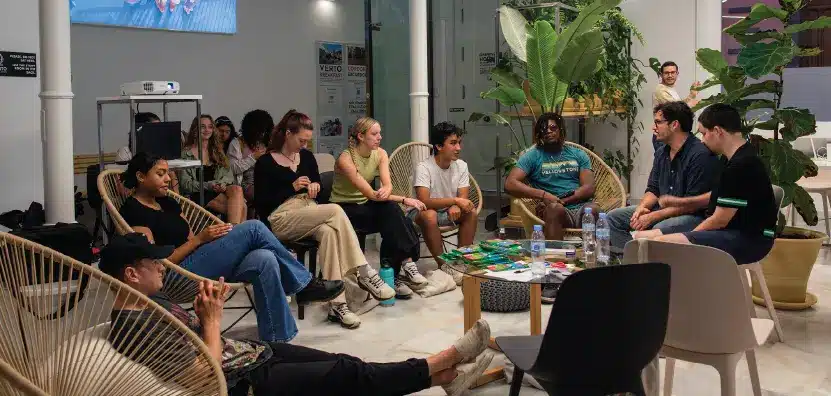
Connecting with others and sharing experiences are an integral part of a Verto semester.
Choosing to travel after graduation can be a hard decision for any high school senior. Taking that leap may feel even harder in the face of so much uncertainty and especially for students jumping in with a less than ideal state of mind.
So students, how can you set yourselves up for success as you prepare to embark on your travels?
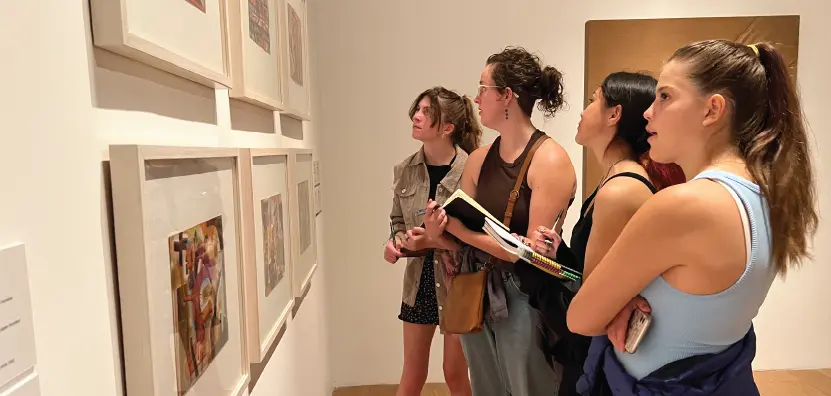
Verto students take time to reflect during their semester – as Gary says, it’s okay not to know exactly what you want to do! Experiences, like traveling, help direct you toward the next right step.
Validate Your Experience
The key to building a healthy mindset is to be honest with yourself about what you are feeling and accept those feelings as valid and normal.
Remember that high school graduation is an overwhelming time under any circumstance and any nervousness is only compounded by everything going on in the world. It’s okay to not feel okay about the future and you’re not alone in feeling this way.
It can be a great relief to talk about your thoughts and emotions with close friends, family or a therapist. Journaling can also be a very useful tool for sorting through any brain fog.
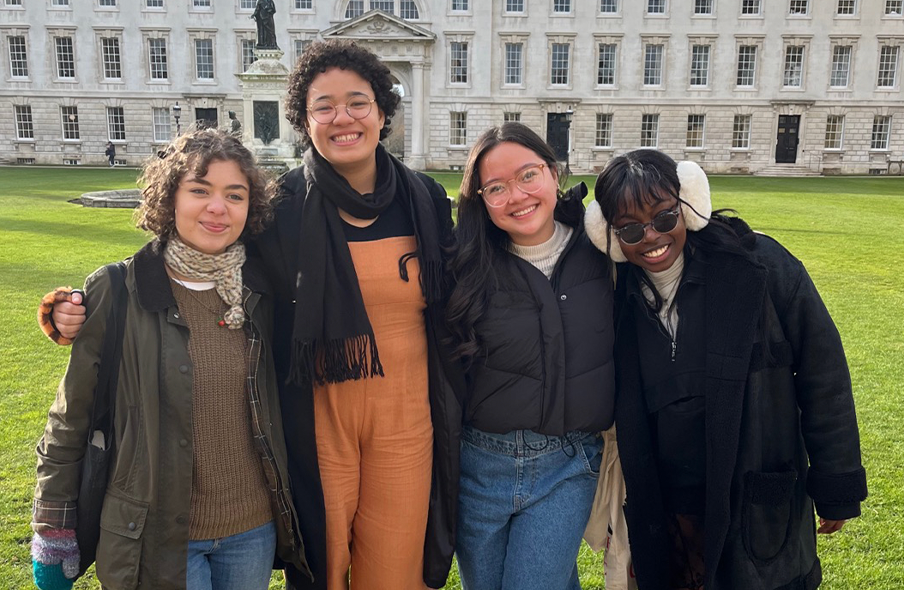
Verto students enjoy lessons from all sorts of hosts – homestay families, guides, instructors, program leaders, and locals – and establishing a new toolbox of skills for any situation.
Establish Your Toolbox
Now is a great time to reflect on what worked well for you in the past in terms of managing your stress. Do you love to dance? Does sunshine always lift your mood? What you love can give you insight into how to best cope with challenging situations.
Some helpful stress management tools can include: deep breathing, daily journaling, exercise, creative outlets, and sunshine and fresh air. You can also use Youtube and apps like Headspace or Calm to learn techniques for meditation or mindfulness.
It’s critical to identify and hone these tools now so that they are easily accessible when you are abroad. Of course, you may need to adapt some of your favorite tools to new circumstances; maybe you can’t go to a gym these days or while traveling, but you can always do an online workout video or learn a style of movement that’s native to the culture you’re exploring.
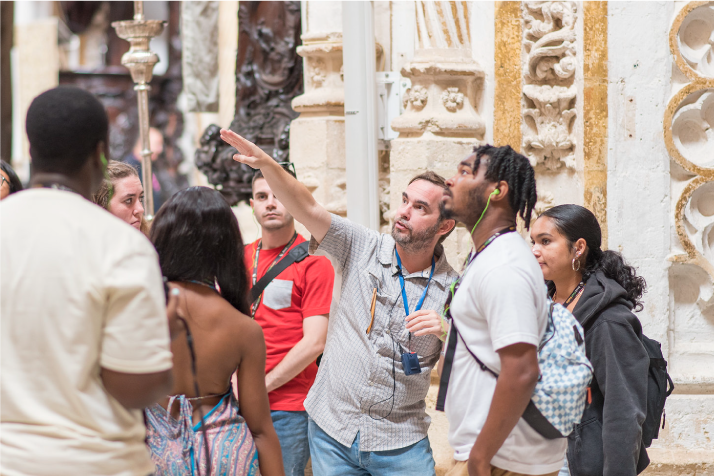
Although each day is unique on a Verto semester, students take time to do school work, reflect, and adhere to a class schedule.
Pursue Structure
Due to the lack of structure these days, it might be hard to feel motivated and get into healthy habits and routines. This can become even more challenging when you’re traveling and experiencing a lot of change.
You can set yourself up for success by getting clear on your intentions for your experience abroad and creating an itinerary that will help you achieve your goals. To take off some of the stress of planning, you can consider finding a program where the logistics will be planned out for you.
Once you’re out there traveling the world, remember that sticking to your self-care routines can drastically benefit your mental health. Establishing some consistency will help you feel more in control amidst so much newness and change. This is where your toolbox will really come in handy. Get in good routines now so that you can stay committed even in your hectic and fun travel schedule.
Sleep hygiene is one of the self-care practices that will be especially important. Sleep is critical to managing your mental clarity, mood, and stress levels, so be sure to prioritize getting enough sleep even when you’re on the go! (A neck pillow, eye mask, and ear plugs are a must for all travelers!)
Seek Out Mentorship
Maybe it was a great teacher, sports coach, drama director, or even an older student– whether you realized it or not, high school was full of opportunities for mentorship.
As you’re isolated from your communities, teachers and leaders these days, you might be feeling like you could use some guidance now more than ever. It’s normal to feel overwhelmed by the plethora of opportunities and choices after high school. So reach out! Email your favorite teacher to have coffee over Zoom, send a DM to an online figure who inspires you, link up with a life coach, or ask your family and friends about their first travel and work experiences.
It can be really helpful and reassuring to hear from others with more experience, especially since they might have some useful advice for your travels (like what to pack, how to stay safe, great places to see, and more). You can also work with a mentor to figure out your goals and develop your game plan.
Take Off the Pressure
Throughout high school, you may have been surrounded by a culture where value was defined by external measures like grades, test scores, college admissions, and extracurricular achievement. With expectations coming from social media, parents, teachers, and peers, it’s clear that your generation is under an incredible amount of pressure.
Travel is an amazing opportunity to get away from all of this noise and pressure and seek success on your own terms.
Now is the perfect time to reflect on your core beliefs, interests, and talents so that you can redefine what success means to you. This clarity and stronger sense of self will make you more resilient when faced with setbacks on your travels and in life.
When you’re traveling, you may also want to consider distancing yourself from social media. This can help you focus on the fantastic memories you’re creating instead of the seemingly picture-perfect lives of your peers online.
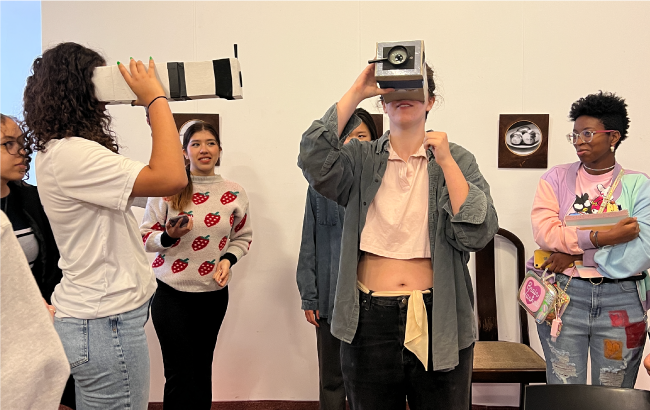
On a Verto semester, students rely on each other and build strong connections through team building activities.
Reach Out to Others
If you’re already feeling disconnected these days, those feelings will only be amplified in a foreign setting far from home.
While you’ll surely be making new friends and finding great connections on your travels, it can feel really good to keep in touch with those who know you best. Now and while traveling, schedule regular one-on-one check-ins with friends and family. You can get creative by going old school with email chains, letters and postcards, or try fun group threads like “Roll Call” where each person in a chat group sends a photo of what they’re up to at that moment.
In addition to talking to friends and family, it can also be worthwhile to consider starting or maintaining consistent therapy through phone or video call. You can coordinate this with your usual therapist or use apps like Talkspace to find someone to speak to virtually.
Both now and when you embark on your travels, make flexibility a part of who you are.
One of the highlights of travel is that students learn how to deal with ambiguity, get comfortable with delayed gratification, and manage confidently when situations don’t meet their expectations.
Consider this time in quarantine as preparation for those challenges. You are getting a head start on developing your ability to cope with uncertainty and lack of control while traveling and in life.
If you can build up your positive outlook and coping tools during this time, your experience traveling will be even more enriching!
Some Final Takeaways
✓ We can’t control the situation but we can control what we think about it.
✓ It’s OK to not be OK. And it’s OK to not know how to feel.
✓ You’re not alone in any of your feelings or fears.
✓ Keep your expectations reasonable and prepare for different outcomes.
✓ Be kind to yourself. Just focus on doing your best.
✓ Create and maintain structure and self-care routines.
✓ Keep it in today: try to avoid overthinking the past or future.
✓ Remember that the uncertainty won’t last forever.

